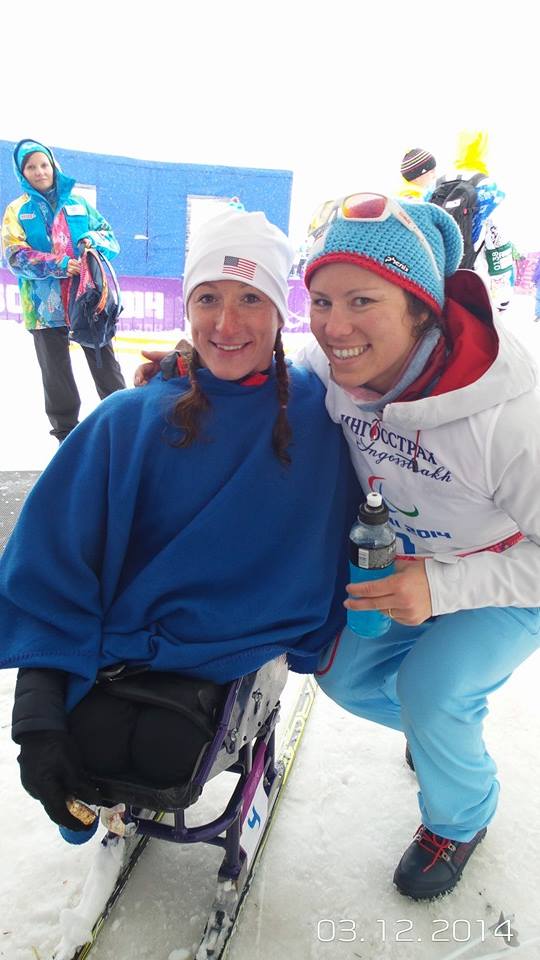
On Wednesday, the marathon-racing queen’s love of sprinting transformed to silver.
In the women’s 1-kilometer sit-ski sprint final at the Laura Cross Country Center in Krasnaya Polyana, Russia, McFadden finished second overall, just one-tenth of a second behind Norway’s gold-medal winer Mariann Marthinsen.
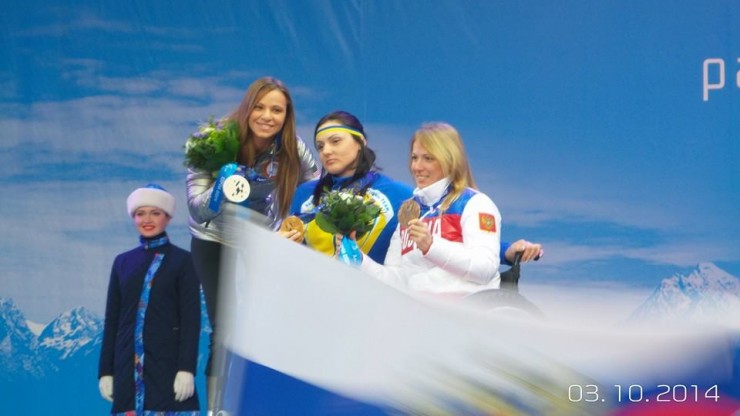
McFadden’s teammate, who also picked up the sport last season, Oksana Masters finished fourth, one second away from bronze.
Masters was in third until the final straightaway, where Russia’s Marta Zaynullia passed her for bronze. Eskau was disqualified due to an illegal lane change.
McFadden, 24, of Clarksville, Md., became the second U.S. women to win a Paralympic medal in cross county skiing in last 20 years. The first was Masters, who won bronze in the women’s 12 k distance race on Sunday.
After picking up skiing just over a year ago, McFadden advanced to the finals on Wednesday by placing fourth in the qualifier and second to Marthinsen in the semifinal. Masters was third in the qualifier round and second in her semi.
At age 6, McFadden was adopted from St. Petersburg, Russia, by American Deborah McFadden. Her birth mother, whom Tatyana recently met, has been in attendance at the Games to watch her compete.
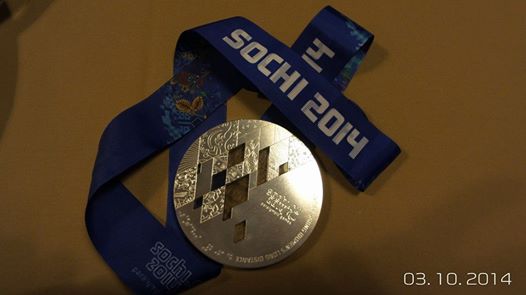
McFadden told FasterSkier before the Games that having both her moms there with her in Sochi “has definitely been a dream of mine … Just having my whole family in the stands is going to be a huge fulfillment so I’m going to take that energy and put it into my skiing.”
Describing McFadden’s rise from a skiing newcomer to Winter Paralympic medalist, U.S. Paralympics Nordic High Performance Director John Farra wrote in an email, “It was definitely a like cramming for a final exam … like fitting in 4 years of college education into one semester, but we started with an athlete with RAW physical talent, power and strength and willingness to work.”
McFadden is a 10-time world champion and three-time Paralympic gold medalist in track racing. She’s competed at three Summer Paralympics and became the first person to win all four major marathons (Boston, London, Chicago, and New York) in a single season. In the 12 k distance event on Saturday, she placed fifth in her first Winter Paralympics race.
“It was definitely a like cramming for a final exam … but we started with an athlete with RAW physical talent, power and strength and willingness to work.” — U.S. High Performance Director John Farra on Tatyana McFadden
“We kept her on snow as much as possible from the start of the season until Sochi … and today it all came together for her,” Farra explained.
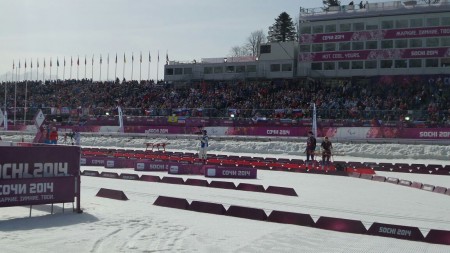
In the men’s sprint final Andy Soule placed fifth and Dan Cnossen took sixth. Sochi roommates, Soule and Cnossen were 6.4 and 8.3 seconds back from bronze, respectively.
“My performances here have been very good for me, every race has been one of the very best of my career,” wrote Soule, who won bronze in biathlon at the 2010 Paralympics.
Soule’s best race, the distance biathlon, will be held Friday March 14th. “I feel very confident about the final biathlon event. The long distance biathlon is a very good event for me.” Soule noted.
Cnossen, a newcomer to the Paralympic Games, described his races in an e-mail, ” [In the semi final] I came around that first sharp right turn wide … then drafted off two Russians and came in third. In the final, I stumbled at the start … and was never able to reel in the other competitors.”
Mark Vosburgh
FasterSkier’s Para-Nordic contributor, Mark Vosburgh lives in Missoula, Mont., where he works as a Wildfire Scientist for the US Forest Service. In addition to being a chemical engineer, Mark is a cross-country and backcountry skier, bluegrass musician, and biker. He’s also a freelance writer for numerous publications including for 48 Degrees North and MakeitMissoula.com.

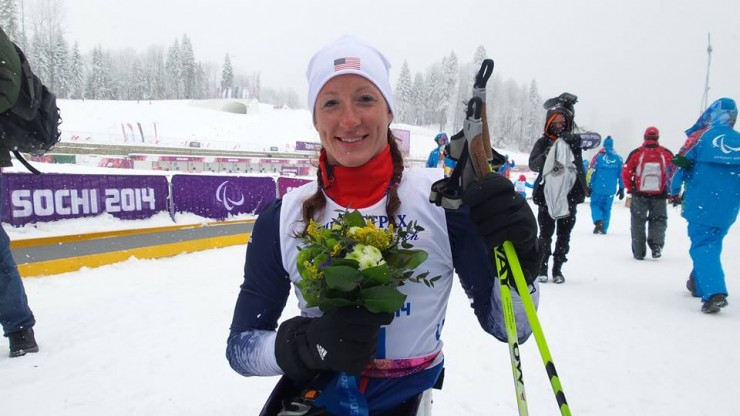
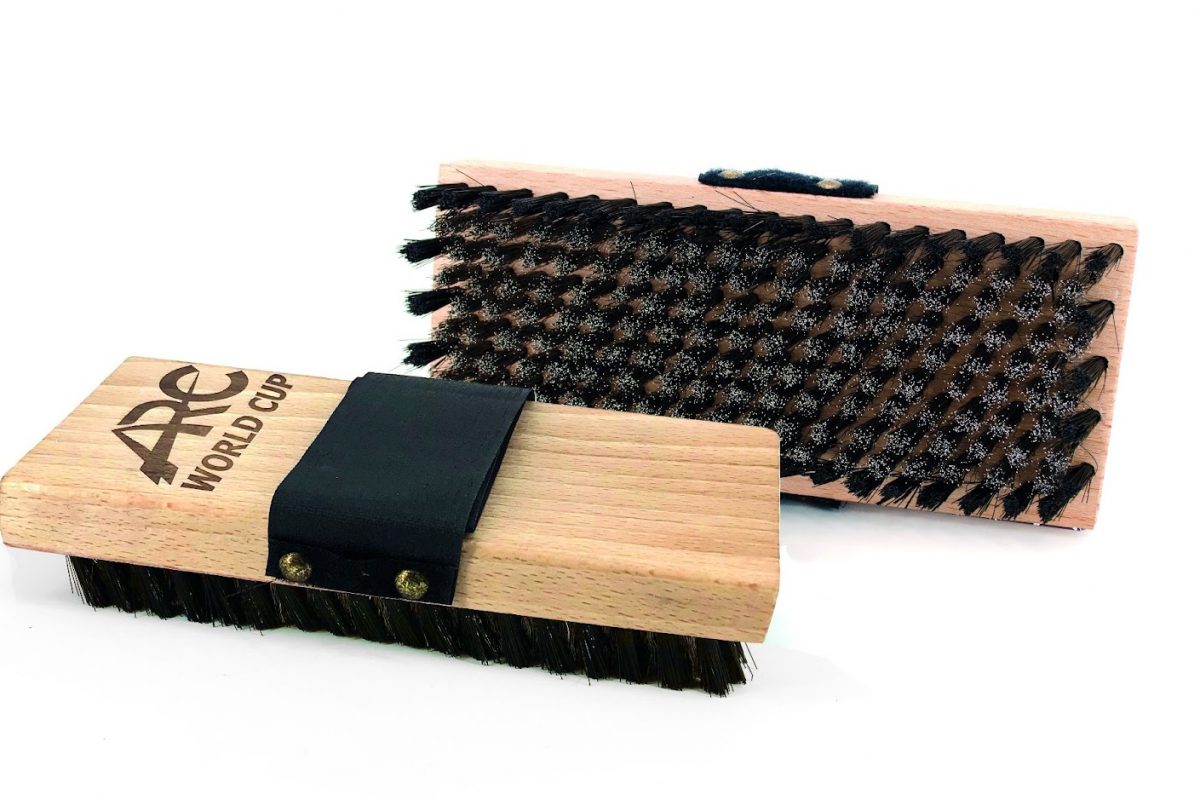


2 comments
highstream
March 12, 2014 at 10:19 pm
Quite the race and finish. Why the 10-second staggered start?
Mark Vosburgh
March 13, 2014 at 8:25 am
The stagger start is a result of the classification system in Paralympic sport. It is designed to allow athletes with different levels of impairment to race together. For example, US McFadden is paralyzed below the belly button. There aren’t enough athletes with this exact level of injury to create a race within this class. So she is given a time adjustment to race against Norway’s Marthinsen who is a single amputee. Watching the finish of this race you can see that the system worked well in this case!